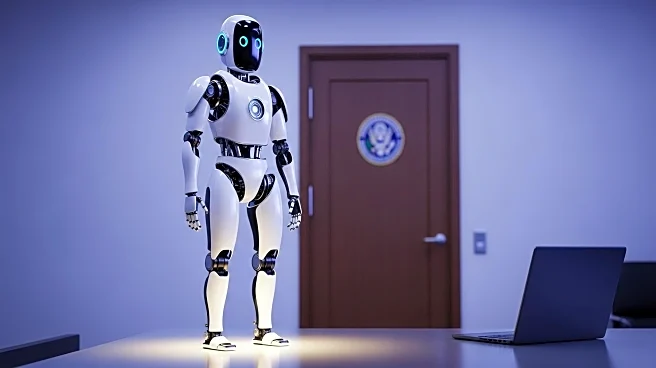What's Happening?
The U.S. government shutdown, the first in seven years, is causing significant disruptions for startups, particularly those in the AI sector. These companies are facing existential challenges as they await permits, visas, and regulatory approvals that are now delayed due to the shutdown. The uncertainty surrounding the shutdown is affecting startups in ways that may not be immediately apparent, as they struggle to navigate the messy reality of establishing sustainable business models amidst regulatory hurdles.
Why It's Important?
The shutdown's impact on AI startups highlights the critical role of government processes in the tech industry. Delays in regulatory approvals can stall innovation and growth, potentially leading to financial instability for startups. This situation underscores the importance of a stable regulatory environment for fostering technological advancement and maintaining the U.S.'s competitive edge in the global AI market. Companies that rely on timely government interactions are at risk, which could lead to a slowdown in technological progress and economic growth.
What's Next?
If the shutdown continues, startups may need to seek alternative solutions to mitigate the impact of delayed approvals. This could involve lobbying for expedited processes or exploring international markets less affected by U.S. government operations. Stakeholders, including industry leaders and policymakers, may need to engage in discussions to address the challenges posed by the shutdown and develop strategies to support affected companies.
Beyond the Headlines
The shutdown raises broader questions about the resilience of the U.S. tech industry in the face of political instability. It also highlights the need for contingency plans to ensure that critical sectors like AI can continue to operate and innovate despite government disruptions. The situation may prompt a reevaluation of the relationship between tech companies and government agencies, emphasizing the need for more robust frameworks to support innovation.









